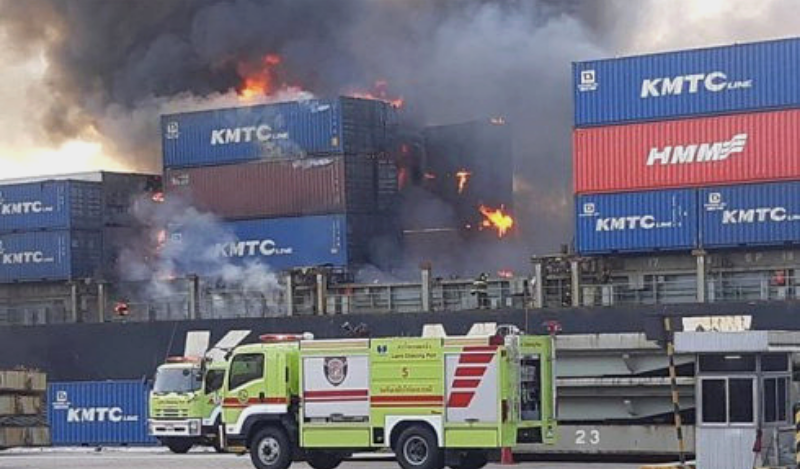News
Penalty on Misdeclaration of Dangerous Goods

As the global issue of environment is alarming, Shipping Lines like Evergreen, Maersk Line, Hapag-Lloyd, Hyundai Merchant Marine, and OOCL have announced that they will implement fines to the tune of several thousands of dollars for dangerous goods misdeclaration. In the latest list of lines, Hapag Lloyd announced that it would implement a penalty of USD 15,000.00 per container, effective from September 15, 2019, for misdeclaration of dangerous goods.
There have been more than 11,000 dangerous goods misdeclarations recorded between 2014 and 2017, which shut out almost 7,000 shipments from being transported due to not following dangerous goods regulations or improper declaration of hazardous cargo and other sensitive commodities.
An advisory from Hapag stated “Failure to properly offer and declare hazardous cargoes before shipment is a violation of the Hazardous Material Regulations. Such violations may be subject to monetary fines and/or criminal prosecution under applicable law.” Further adding “To ensure the safety of crew, ships and other cargo on board, the Shipper is liable and responsible for all costs and consequences related to violations, fines, damages, incidents, claims and corrective measures resulting from cases of undeclared or misdeclared cargoes.”
There is a set list of dangerous goods under IMDG Code (International Maritime Dangerous Goods Code is accepted as an international guideline for the safe transportation of dangerous goods and hazardous materials by sea) which can be traded but before any voyage a shipper has to declare them under MSDS document which is further approved by the concerned shipping line. The code contains advice on terminology, packaging, labeling, placarding, markings, stowage, segregation, handling, and emergency response in relation to carrying dangerous goods by sea. The implementation of the Code is mandatory in conjunction with obligations of members of the United Nations Government under the International Convention for the Safety of Life at Sea (SOLAS) and the International Convention for the Prevention of Pollution from Ships (MARPOL73/78).
The TT Club (Through Transport Club) reported that statistics indicate there is a major container cargo fire at sea roughly every 60 days. As per the club, as the size of container ships increases, so does the potential risk and consequence of a large explosion or fire incident. Major disasters have happened in 2019 inclusive of Yantian Express case in January 2019 where a 7,510-TEU vessel suffered fire on its way from Colombo, Sri Lanka to Halifax, Canada.
This problem came to light after May 2019’s KMTC Hong Kong fire, where 35 containers on the way to Laem Chabang, Thailand caught fire. It was due to mis-declared chemical cargoes of calcium hypochlorite and chlorinated paraffin wax which caused over 130 causalities who were later transferred to the hospital after the explosion and fire.
This initiative has been marked to restrain marine life from polluting and prevent any tragedy or mishappening.